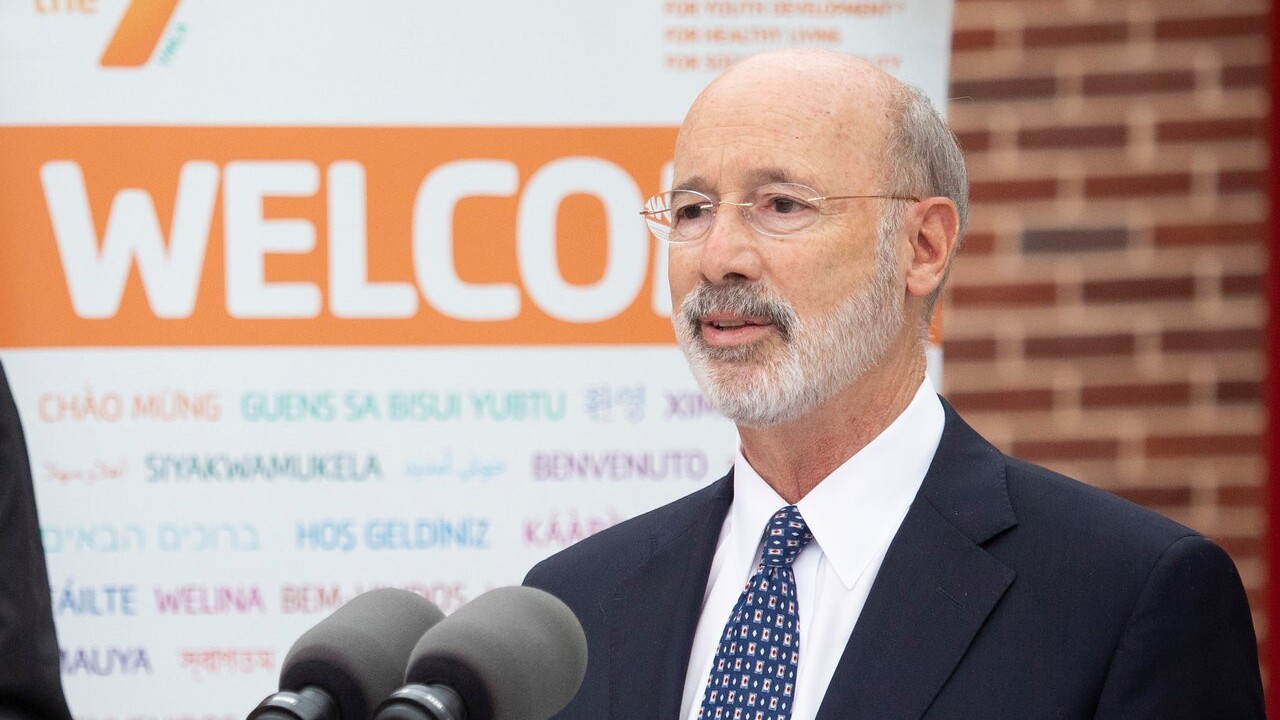When Ken Miller changed his party registration from Democrat to Republican in September 2020, he said he wasn’t doing it for Donald Trump. He had not voted for Trump nor Hillary Clinton in 2016. Rather, he said, he was doing it for himself and his community after watching Democrats govern during the pandemic.
“I am tired of what I am seeing,” he said. Democrats appeared to ignore people like Miller, viewing his vote as replaceable by someone in their theoretical ascendant Democratic coalition of young people, women, intellectuals and nonwhite voters. But the thinkers in Washington may have been too clever by half.
Without working-class voters — white, black and Hispanic — one cannot form a coalition to win elections. This applies not just to the White House but also to congressional and state-level races. In fact, if Democrats abandon workers for the professional class, they won’t even be able to hold school boards and county row offices in many places.
In September 2020, Cambria County Democrats became a minority party without much fanfare. The Pennsylvania Department of State registration numbers showed Republicans with 37,951 registrations and Democrats with just 37,826. Since that milestone, the bleeding has continued, with Democrats decreasing by nearly 3,000 voters to 35,037, while Republicans have risen to 41,128.
Just 14 years ago, Barack Obama won this county over John McCain. Four years later, Mitt Romney absolutely walloped Obama by 18 points, but the reality was that the Obama Democrats lost the county more than Romney won it. A major contributor was the escalating Democratic cry of “racist!” as a replacement for making reasoned arguments about policy — something that took off in earnest around 2010. This was one of the factors prompting many 2008 Obama voters here, even those with familial Democratic pedigree going back to President Franklin Roosevelt, to switch sides. In both the 2020 and 2021 statewide elections, voters overwhelmingly favored Republicans in down-ballot races.
What are Democrats to do? They can always turn back to Obama, who once united them. But his effectiveness as a campaigner was never really transferable to other Democrats, as they discovered to their regret during Democratic losses in 2009, 2010 and 2014. His latest failure as a surrogate came in Virginia last fall, where even under better circumstances he failed to put former Gov. Terry McAuliffe over the top. Before that, in 2020, Obama and former Attorney General Eric Holder raised more than $50 million in an effort to win back state legislatures, including in Pennsylvania. Instead, Democrats lost legislative seats, both in Pennsylvania and nationally, instead of gaining them, despite Joe Biden’s up-ticket victory.
The biggest problem is that both Washington Democrats and the press seem to have no idea who comprises the Democrats’ base anymore. “Some base Democrats see Obama as too conservative, and the working-class Democrats see him as too liberal,” one Democratic strategist remarked. “The appeal he would have would be with suburban-mom voters, but even that’s a stretch given how they feel about education.”
In short, Obama is probably not going to save Democrats in places like Johnstown, which until now have been key to statewide Democratic victories. And Keystone State Democrats certainly aren’t helped by Biden nor by Gov. Tom Wolf, given that both Democrats are polling very poorly in the state. Wolf was just handed a slap in the face by voters last May, when they voted to strip him of some of his executive powers.
They are on the wrong side with voters who would traditionally consider them for a state legislative race, U.S. Senate race or congressional race. Voters are angry at Democrats about inflation; gas prices; the border and how the problem eventually hits their neighborhoods and suburbs in the form of fentanyl and methamphetamine addictions; the out-of-control crime; education control and the lingering impressions after the chaotic and deadly withdrawal from Afghanistan.
Yet to this day, their messages are about climate change and Trump. It’s as though they have never left Washington to see what is really upsetting voters.
Cambria County isn’t the only Pennsylvania county where Republicans are gaining registered voters. All across the state, including in suburban Philadelphia and Pittsburgh, Republicans are signing up former Democratic voters like Miller at four times the rate Democrats are making the reverse conversion.
Former Pennsylvania Republican Party Chairman Rob Gleason said when he took over the state party in 2006 that Democrats had a huge registration advantage and had just swept Republicans out of office in Congress and in the state Legislature.
“They had a 1.5 million registration advantage when I started to run the party,” he said. “Today, that number is down to half a million.”
Winning and losing in politics is generally about one thing: overreach.
When the Democrats took power in January of 2021, they believed they had won because everyone loved them again. They took this as a license to do whatever they wanted, and they behaved that way with everything they did. They put climate change into everything, racialized every issue they possibly could, and strove for a fundamental transformation of the country. When it came to such concerns as the southern border and Afghanistan, their answer was to ignore the problem.
This delusion is hurtling Democrats toward a painful defeat. But any Republican victory will be short-lived in places like Cambria County if they win and then make the same mistake.
Salena Zito joined the Washington Examiner in 2016 as a Western Pennsylvania-based columnist and reporter covering national politics and culture. She is also a weekly columnist at the New York Post, contributes to The Wall Street Journal and co-authored “The Great Revolt: Inside the Populist Coalition Reshaping American Politics” with Brad Todd. In 2018, she won first place for her columns in the Associated Press for her coverage of American politics, and she also won the Barbara Olson award for excellence and independence in journalism.
She has taught journalism at the Harvard Institute of Politics, Washington and Lee University, and Hillsdale College.
She has interviewed every president, vice president and candidate who sought their party’s nomination on both sides of the aisle in the 21st century.






